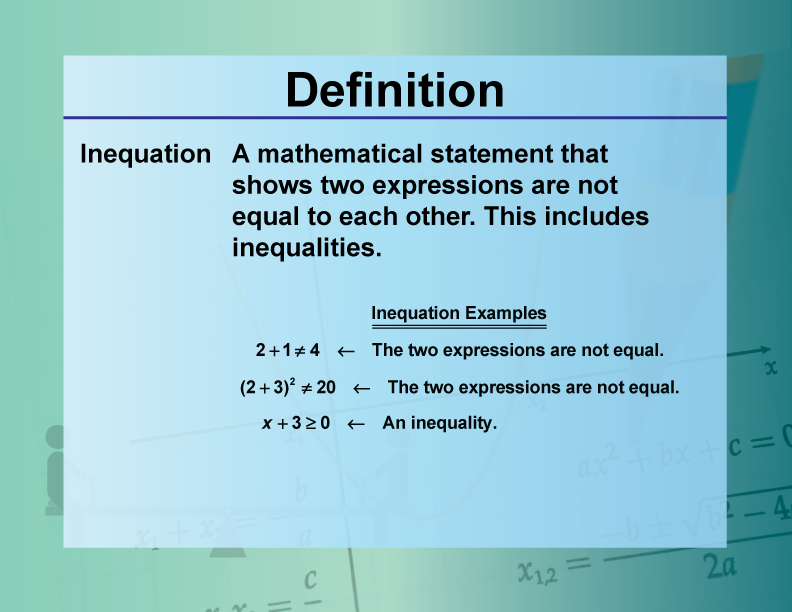
Display Title
Definition--Equation Concepts--Inequation
Display Title
Inequation

Topic
Equations
Definition
An inequation is a mathematical statement that shows the inequality between two expressions.
Description
Inequations, or inequalities, are statements that compare two expressions using inequality symbols such as >, <, ≥, and ≤. For example,
x + 3 > 5
indicates that 𝑥 x must be greater than 2. Inequations are used to represent constraints and conditions in mathematical models. Inequations sometimes involve the inequality symbol: ≠.
In real-world applications, inequations are used in optimization problems, economics, and engineering to define feasible regions and limits. Understanding inequations helps students solve problems involving constraints and develop logical reasoning skills.
For a complete collection of terms related to functions and relations click on this link: Functions and Relations Collection
| Common Core Standards | CCSS.MATH.CONTENT.6.EE.B.5, CCSS.MATH.CONTENT.7.EE.B.4, CCSS.MATH.CONTENT.HSA.REI.A.1 |
|---|---|
| Grade Range | 6 - 12 |
| Curriculum Nodes |
Algebra • Expressions, Equations, and Inequalities • Inequalities |
| Copyright Year | 2021 |
| Keywords | equations, solving equations, definitions, glossary terms |